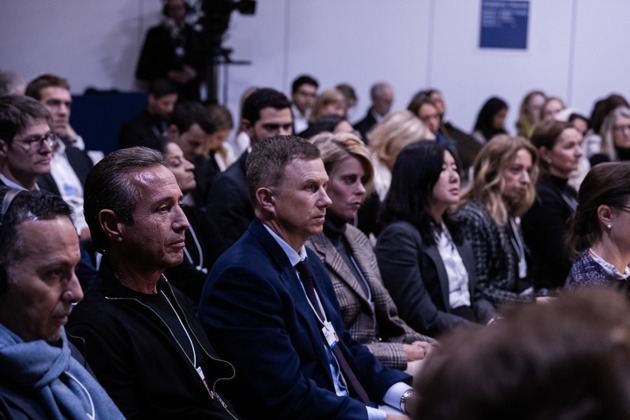
Photo/WEF website
At the World Economic Forum (WEF) 2024 in Davos, Switzerland, artificial intelligence (AI) was a hot topic of discussion. WEF founder and executive chairman Klaus Schwab remarked that the generative AI technology was still in its infancy at the beginning of 2023, but it has already grown into a "teenager" in just one year.
Several studies have pointed out that AI will become an important driver of global economic and social development. OpenAI CEO Sam Altman said during the meeting that human-level AI will also be developed soon. However, while AI technology offers opportunities for social development, the challenges and risks it brings cannot be ignored. Altman said that the future of AI is inseparable from breakthroughs in energy, while UN Secretary-General António Guterres has strongly called for strengthening AI risk management.
OpenAI CEO: The future of AI needs breakthroughs in energy, will increase investment in nuclear fusion
In a conversation with Bloomberg at the WEF meeting, OpenAI CEO Altman said that people's concerns that AI will one day become so powerful that it will greatly reshape and disrupt the world are unnecessary. "Its impact on the world, and its impact on jobs, is much smaller than we imagined."
Altman also specifically mentioned artificial general intelligence (AGI), which refers to a form of AI that can perform tasks at the same level as humans or slightly higher. He believes that AGI could be developed in the relatively near future.
When asked if AI will exacerbate economic inequality, Altman said, "I think it's something worth considering. It's more like a tool than I thought." He believes that while AI has become an "incredible productivity tool," it has not replaced jobs on a large scale as many economists have feared.
In addition, an energy breakthrough is necessary for future artificial intelligence, which will consume vastly more power than people have expected. The solution to this problem is to develop environmentally friendly energy, especially nuclear fusion or cheaper solar and storage. "If there is no breakthrough, it is impossible to achieve this goal. This motivates us to increase our investment in nuclear fusion."
Meta executive: The AI era is a "major moment" for the tech industry in a decade
Facebook parent company Meta Platforms global business group head Nicola Mendelsohn told CNBC at the WEF meeting that the new AI era represents a "major moment" for the tech industry that has not been seen in a decade. For 2024, Mendelsohn said the focus should be on the potential of AI to benefit human society, while also paying attention to the risks associated with AI technology.
In 2023, Meta also took an important step towards artificial intelligence, winning a place in the AI field with its LLaMA large language model. Meta also launched the Quest 3 headset, continuing to drive its virtual universe business.
Intel CEO: “This next phase of AI will be about building formal correctness into the underlying models.”
Intel CEO Pat Gelsinger said in an interview with CNBC during the WEF meeting that the capabilities of AI technology have been fully demonstrated in 2023, and the focus in 2024 should be on improving the accuracy of the results, so that executives in high-risk industries such as hospitals and manufacturing can use artificial intelligence with confidence.
"You've now reached the end of today's AI utility," Gelsinger said, “This next phase of AI, I believe, will be about building formal correctness into the underlying models.”
He explained that the importance of AI accuracy is clear, whether it is a doctor relying on AGI for diagnosis, a warehouse using AI to check assembly line failures or autonomous driving.
“Certain problems are well solved today in AI, but there’s lots of problems that aren’t,” Gelsinger said. “Basic prediction, detection, visual language, those are solved problems right now. There’s a whole lot of other problems that aren’t solved. How do you prove that a large language model is actually right? There’s a lot of errors today. So you still need you know, essentially, I’m improving the productivity of a knowledge worker. But at the end of the day, I need the knowledge worker to say is it right.”
UN Secretary-General Guterres Calls for Stronger AI Risk Management
At the World Economic Forum (WEF) 2024 in Davos, Switzerland, United Nations Secretary-General António Guterres warned that every new interaction of generative AI increases the risk of serious unintended consequences.
Guterres cited a report by the International Monetary Fund (IMF) this week that said AI could exacerbate inequality. He urged delegates to participate in the UN's efforts to develop networked and adaptive AI governance models.
“We need governments urgently to work with tech companies on risk management frameworks for current AI development; and on monitoring and mitigating future harms. And we need a systematic effort to increase access to AI so that developing economies can benefit from its enormous potential.


 川公网安备 51019002001991号
川公网安备 51019002001991号





